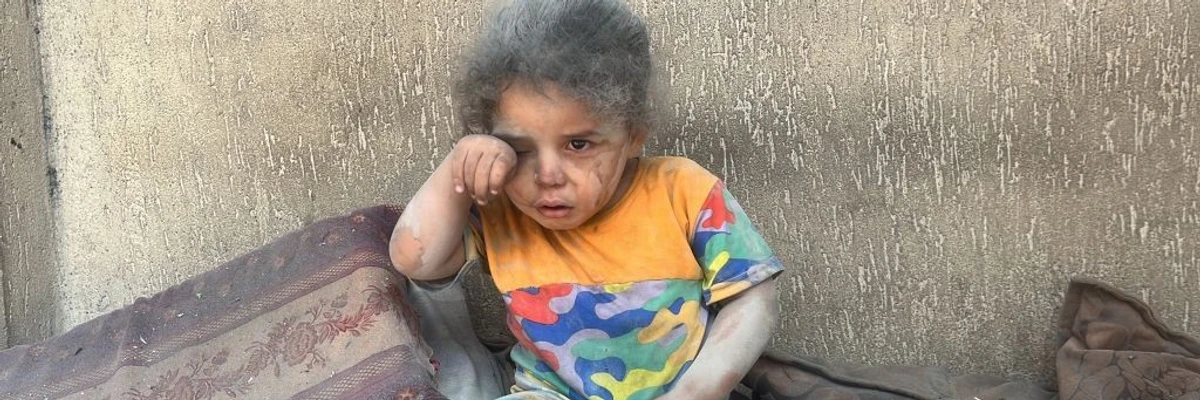
A groundbreaking study reveals the staggering psychological toll of the Gaza genocide on children.
Conducted by the Community Training Centre for Crisis Management (CTCCM) with support from the War Child Alliance and the Dutch Relief Alliance, the assessment found that 96% of children feel their death is imminent, and nearly half have expressed a desire to die.
The study surveyed 504 families, each with at least one child who is disabled, injured, or unaccompanied. The data, collected in June, paints a grim picture of the mental health crisis in Gaza, which experts believe has worsened in the months since.
Children Trapped in Trauma
The findings expose the depth of the crisis:
* 96% of children fear imminent death.
* 49% have expressed a wish to die.
* 92% are “not accepting of reality.”
* 79% suffer from recurring nightmares.
* 73% display signs of aggression.
The trauma manifests in other ways, including anxiety, fear, social withdrawal, and difficulty concentrating. Many children also report physical symptoms, such as pain, linked to their mental health struggles.
Helen Pattinson, CEO of War Child UK, called the report “one of the most horrifying insights into children’s mental well-being anywhere in the world.” She stressed that Gaza’s children are enduring the worst effects of a war they did not create, with both their physical and emotional well-being under attack.
“For children in Gaza, nowhere is safe,” said Rob Williams, CEO of War Child Alliance. “They have seen homes destroyed, loved ones killed, and schools turned to rubble. The constant fear of death and displacement is devastating their mental health.”
Long-Term Consequences
Over 60% of the surveyed children experienced at least one traumatic event, with many exposed to repeated violence, including airstrikes, displacement, and separation from their families. An estimated 17,000 children in Gaza are unaccompanied.
Dr. Yasser Abu Jamei, a leading Palestinian psychiatrist, warned of the lasting impact. “The scars of this trauma could affect generations,” he said, urging international support for psychological first aid.
The report highlights the urgent need for global intervention. Advocacy groups are calling for a ceasefire and unrestricted delivery of humanitarian aid, including mental health support for children according to the Quds News Network.





